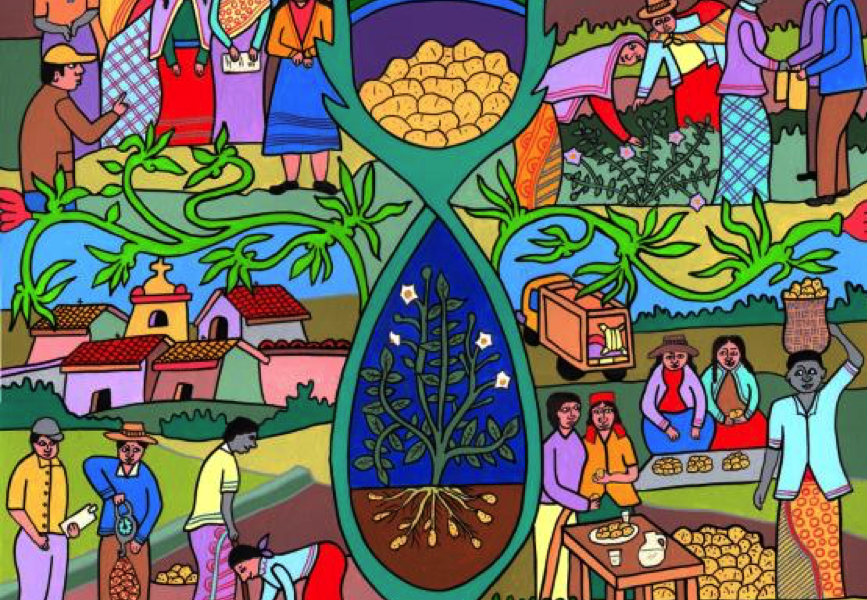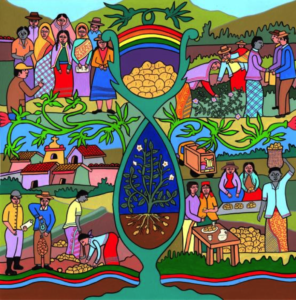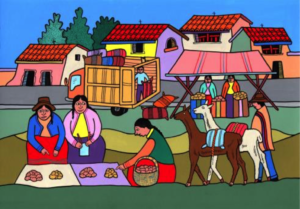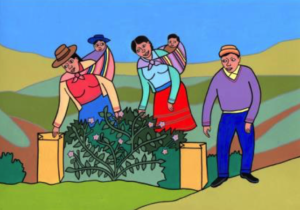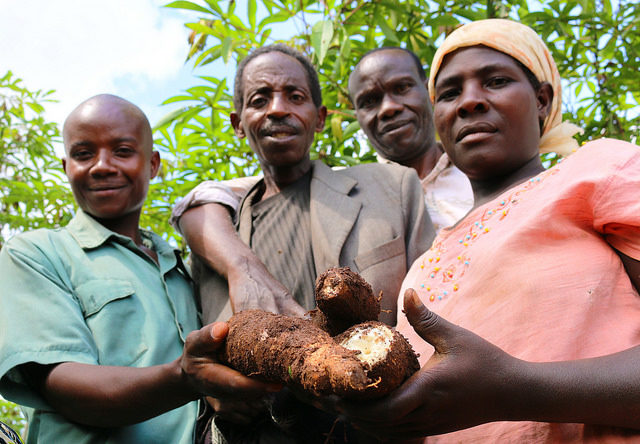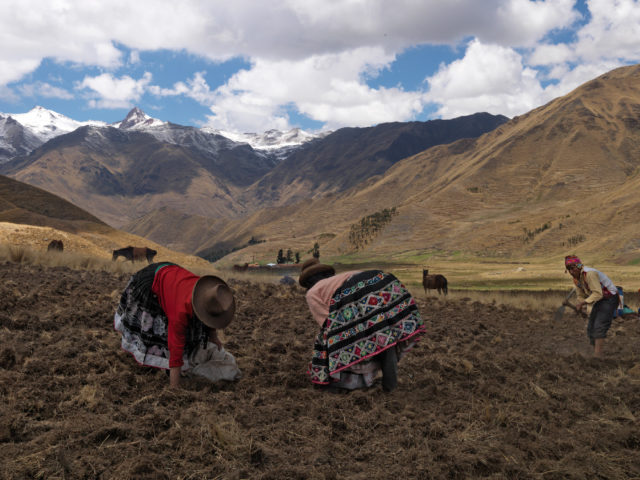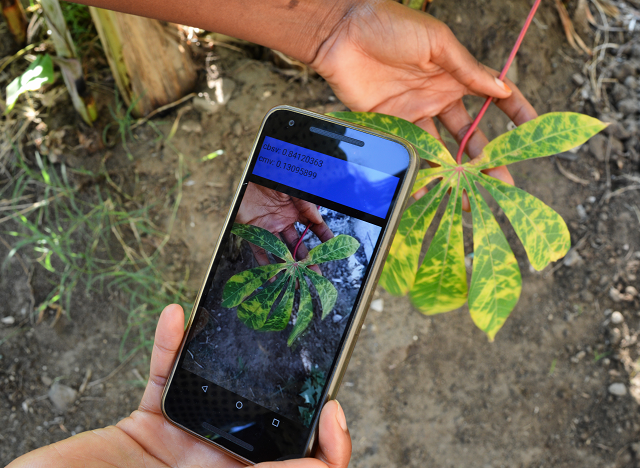Thanks to support from RTB, a CIP training manual on participatory varietal selection (PVS) has been improved by adding gender-sensitive elements at each step of the selection process. The manual, now entitled How to Conduct Participatory Varietal Selection in Potato: A Gender Responsive User Guide was revised in 2014 and will support training of trainers in gender-responsive PVS.
PVS gives a voice to both men and women, recognizing that they have valuable but different experiences, preferences and knowledge relevant to technological needs.
The methodology, called “Mother & Baby Trial Design,” was originally designed by agronomists based on experience from interacting with farmers through a regional soil fertility network in southern Africa and was further developed and tested by CIP in Peru for large-scale farmer-participatory cultivar evaluations in potato growing areas in the Andean region.
The trial method is a participatory research design that allows farmers and researchers to test best-bet new varieties. It encourages active participation of farmers through the application of treatments in their own plots called “Baby trials” (i.e. farmer managed trials) and in fields with an experimental design called “Mother trials” (i.e. researcher managed trials), as well as through the evaluation and selection of treatments. Farmer managed trials have the purpose of disseminating new varieties as well as assessing the performance of varieties under farmers’ conditions.
The methodology was originally adapted for root and tuber crops in 2008 under the RedLatinPapa project and since then has been used by CIP and partners in Bolivia, Colombia, Ecuador and, more recently, Bangladesh, Bhutan and Nepal.
“The interesting aspect of this methodology is that it can be applied to other RTB crops and can allow for adaptive research, varietal dissemination and empowerment of farmers alike”, explains Stef de Haan, who was coordinator of Red LatinPapa for CIP when the “Mother & Baby Trial Design” was adapted for the evaluation of potatoes in remote, food-insecure communities in the Andes. “The tools have worked very well for collecting information on the desirable traits – yield, resistance to pests and diseases, taste, etc. – that farmers look for in crop varieties. Their involvement clearly provides interesting insights to researchers for the documentation of preference traits, but just as importantly, participatory varietal selection can result in the rapid release and uptake of varieties by smallholders, as the gained knowledge about new varieties improves the fit of technology and facilitates earlier adoption by improving access to better varieties for resource poor farmers.”
“Gender specialists apply a kind of “gender filter” to methods and approaches that help identify opportunities to better include women in participatory processes,” explains CIP gender specialist Nadezda Amaya, who led the revision. “In order to ensure gender representativeness in the results, we added recommendations for PVS facilitators and trainers to adequately address the issue of trait preferences by gender, given that involving all farmers is regarded as a prerequisite to adoption and upscaling.”
The manual, which is now available in English, has also been linked to an open-access digital platform that allows researchers or agricultural extension workers to upload their data and generate the analysis easily. “It saves a considerable amount of time by providing them with processed data to support the decision-making. We estimate that dozens of hours of work analyzing the inputs can be spared with the platform, freeing up valuable time and resources,” explains Reinhard Simon, CIP’s Integrated IT & Computational Research (IITCR) leader.
